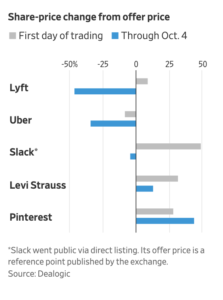Reuters News reported yesterday that, “Bayer expects the number of claims in the United States related to Roundup herbicide to have surged in the third quarter, as the German drugs and pesticides maker tries to reach a settlement after earlier court rulings against it.
“‘With the substantial increase in plaintiff advertising this year, we expect to see a significant surge in the number of plaintiff filings over the third quarter,’ the company said in a written statement.
“Bayer, which acquired Roundup and other glyphosate-based weed killers as part of its $63 billion takeover of Monsanto last year, faces potentially heavy litigation costs as plaintiffs claim Roundup causes cancer, something Bayer disputes.”
The Reuters article noted that, “The drugmaker said in July that the number of U.S. plaintiffs in the litigation had risen to 18,400 and it is due to provide an update on Oct. 30, along with quarterly earnings.
“Analysts at JP Morgan, citing an analysis of Missouri court data, said in an Oct. 9 research note that the total number of glyphosate cases could rise to more than 45,000.
“However, several lawsuits have been delayed recently as mediator Ken Feinberg tries to negotiate a settlement.”


